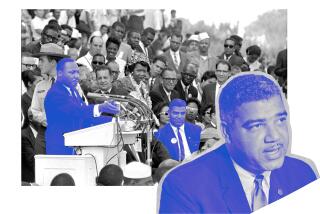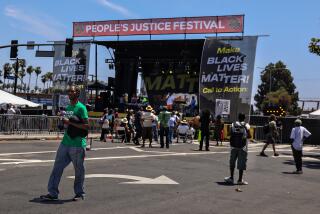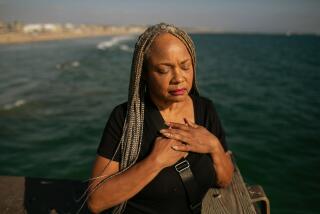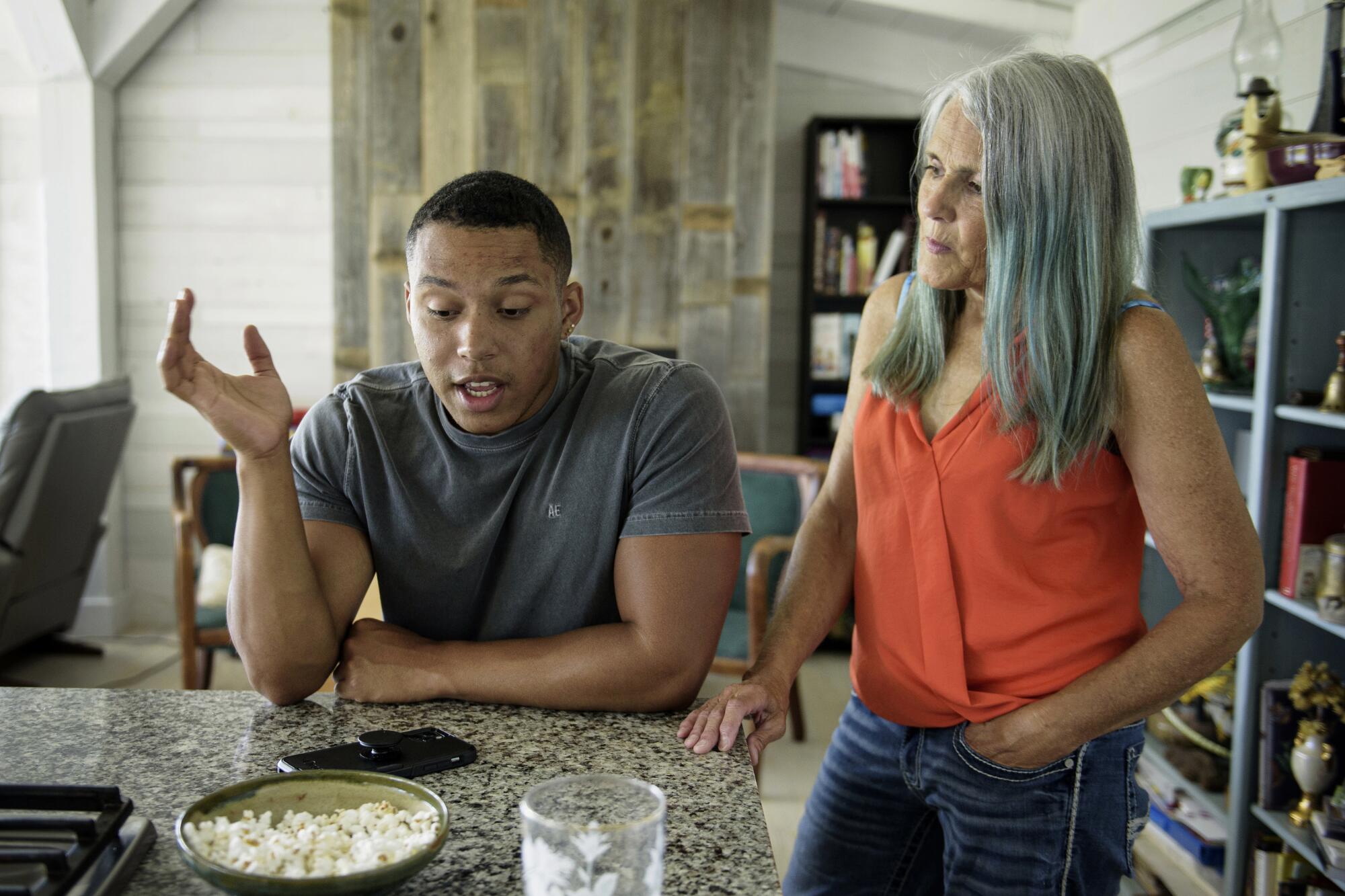
It was an otherwise quiet Friday morning when they stood in the living room and finally told each other how they felt.
“You have no idea how hard it’s been!” Marcy Ugstad yelled at her son. “I’ve been concentrating on this racial thing for six weeks!”
“Oh, I’m sooo sorry,” snapped back Jesse Ugstad. “It must be sooo hard to try to imagine my entire life.”
Marcy was white, a woman who had lived most of her 65 years believing she didn’t see race.
Jesse was Black, a man who more and more saw his world imbued by racism as he approached 22.
To both of them, it felt like the summer was nothing but an endless discussion — often a fight — about skin color.
Marcy was frustrated, thinking her son lumped her in with the worst of racists. She wondered why she wasn’t given credit for trying to learn what her nation had long worked to ignore.
Jesse was exhausted, sick of seeing videos on Twitter of Black people arrested and killed, annoyed that people kept coming to him with questions about being Black in a town where the only Black face he sees for days at a stretch is the one in the mirror.
They huffed and turned away, not speaking to each other for the rest of the day.
She just doesn’t always get it.
— Jesse Ugstad
Millions have protested across America for racial justice. Local governments, industries and businesses have been drawn into the raw emotion of the times. But far more common are the dining table conversations playing out in homes like this one, where the summer of 2020 has become a complicated, if at times tortured lesson in ideas and language around race that some never before considered.
Colorblind versus anti-racist. Microaggressions. Chads and Karens. White privilege.
For Marcy, it can be too much.
For Jesse, it has been too little.
“He’s so angry lately,” said Marcy, who, after raising her first four children, felt she still had more to give and took Jesse in as a newborn at a time when families were given little guidance on interracial adoptions.
“She just doesn’t always get it,” Jesse said of his mom, who, aside from a stint in Germany while in the Army, has lived in Minnesota’s lake country her whole life.
Mother and son are bound by love and a shared belief in grace that has grown strong through countless Bible studies and Sunday services. But that bond does not always calm the raised voices in the living room that come when discussing race.
***
At the end of a dirt road in this small village of under 700, the Ugstad house sits in the same state where George Floyd’s death set off a global movement. Yet, this 99% white town surrounded by lakes is a world away from the streets of Minneapolis or other troubled big cities that make headlines.
Diversity here means what part of Scandinavia and Northern Europe your ancestors came from. The county voted 2 to 1 for President Trump. Nearly everyone is a Christian; the local diner posts a list of 16 churches along with its menu.
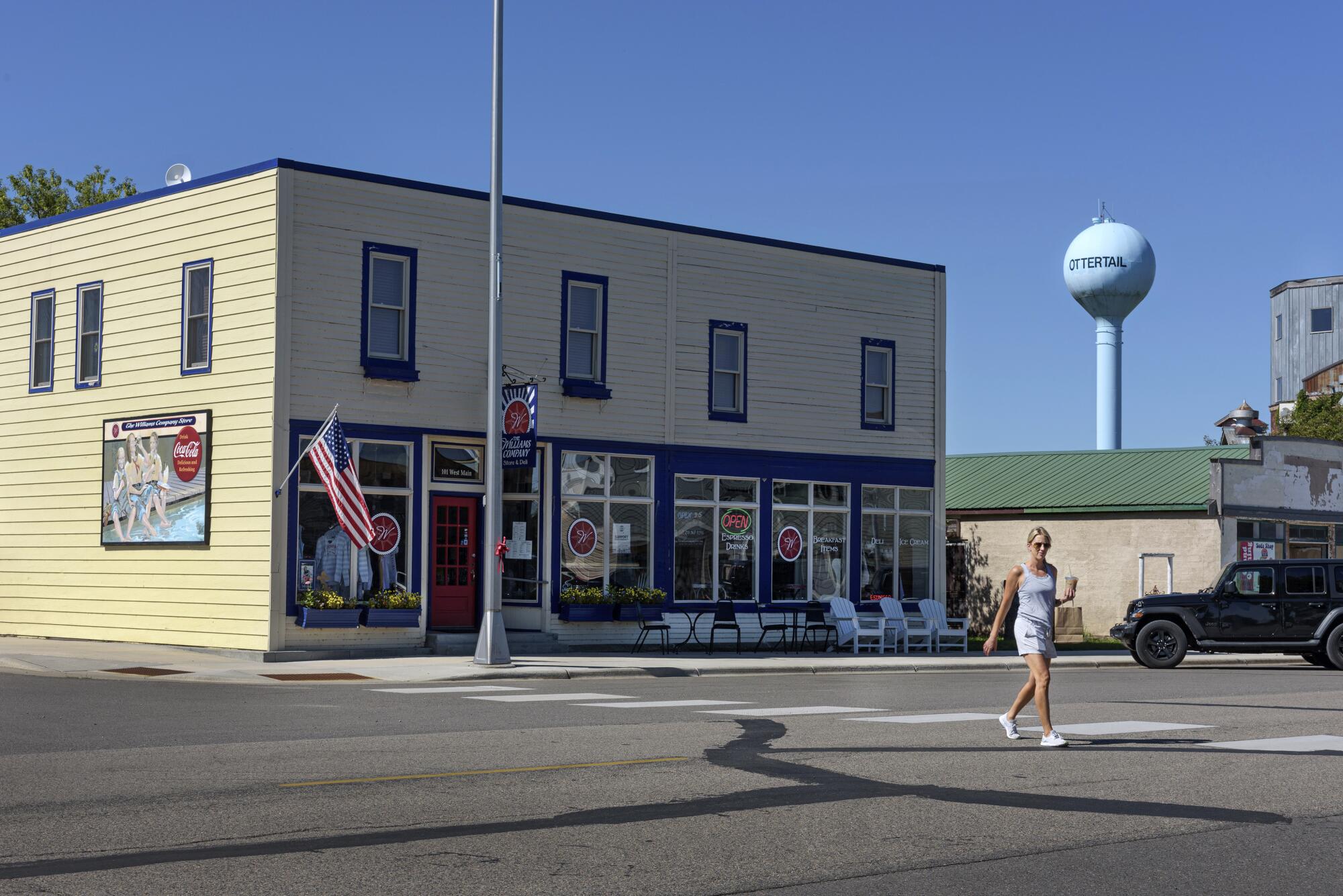
European immigrants settled in Ottertail in the 19th century on land that was home to Dakota and Ojibwa tribes. Its four-block Main Street has a church, gym, bar, laundromat, post office, hardware store and three restaurants against the backdrop of a water tower. The region is dotted with villages just like it, broken up by more than 1,000 lakes, a number that surpasses nearly every county in the nation.
Jesse knows it as the only part of America he’s really called home. But he’s started to wonder if he belongs.
***
The Ugstads’ journey around race began in early June.
Marcy was finishing the school year as an online high school physics teacher. Jesse was furloughed from his new job going door-to-door for the U.S. Census Bureau.
They watched in tears and anger as the videos of Floyd’s last moments replayed on TV. Marcy wanted to go to Minneapolis, three hours southeast, to pray at outdoor church services at the corner where he died. Jesse wanted to protest.
Instead, they drove just a few minutes out from their dirt road to Highway 78, past soybean and potato fields. They parked along Otter Tail Lake.
Jesse pointed his phone at his mom as she did a one-person Black Lives Matter march, holding a poster that said “America repent” on one side and “I can’t breathe” on the other. She pulled a red wagon that carried an American flag and a metal rooster, a biblical symbol to remind her that she wasn’t always right. It was the first time she had protested since camping outside abortion clinics as a young woman.
Jesse uploaded the photo to Twitter, where tens of thousands suddenly retweeted the post. “Queen!” they replied. “I love your mom!” Some tweeted to ask why a white woman was getting so much credit for such a simple act that couldn’t compare with the violence Black people have faced for centuries.
“She’s doing this for me,” Jesse shot back.
***
The nation’s racist history exploded into its present summer.
Cities rallied to defund the police. Talk of race echoed from radios and street corners. A man’s death had stirred an awakening. Mars and Quaker Oats promised to rename their foods, kicking Uncle Ben and Aunt Jemima off the shelves. The president railed against protests, suggesting he alone knew how to solve the nation’s woes.
The Ugstads made their own changes at home in Ottertail.
Two church friends had said “no” to Marcy when she asked them to march that day with her flag, sorrow and red wagon. Jesse felt the Christians he had called his brothers and sisters had turned their backs on him. The two stopped going to church, a 30-person congregation best known for its worship band. Marcy drifted to other services; she recently attended Catholic Mass.
When a state representative visited Betty’s Pantry, the local diner, to talk about policing, Marcy stood up after a white woman she knew held up a Bible and shouted, “All lives matter.”
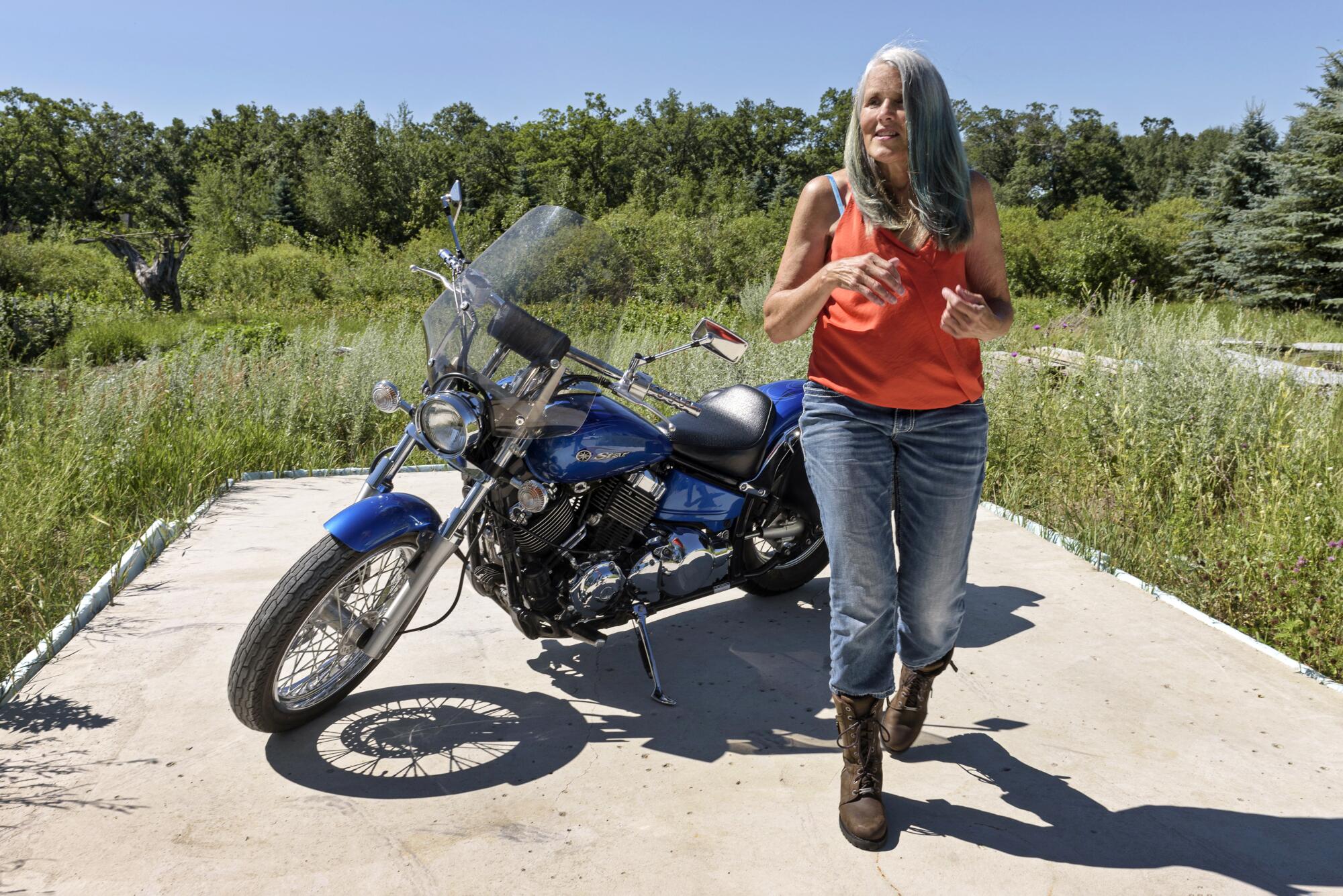
“Well, yeah, they do, but our country is hurting right now and we need to say that Black lives matter,” Marcy said.
She compiled a list of “racial reconciliation” readings, many that spoke to the racial divides in church life.
She sought out a copy of “White Fragility,” the book by sociologist Robin DiAngelo that has climbed bestseller lists, even as friends told her it would make her feel ashamed of her race.
“I thought I was crazy to buy it,” Marcy said.
But as she flipped through, she saw herself in a new light.
She would read it alone at night before bed in the living room, looking out from the window to Buchanan Lake, highlighting phrases that stuck out.
“There was both knee-jerk defensiveness about any suggestion that being white had meaning and a refusal to acknowledge any advantage to being white,” said one early sentence she marked.
“That was me,” Marcy said.
***
An aspiring singer-songwriter who never had Black friends until a few years ago when he did a stint at music school in Memphis, Jesse was increasingly going on Twitter. His posts shifted from retweeting gifs and quotes from his favorite singers — Katy Perry and Mariah Carey — to videos of police arrests and charts showing that Black people were more likely to be killed by cops than people of other races.
His go-to outfit of a T-shirt, gym shorts and a buzzed head changed too. He grew his hair out and styled it in waves. He went online to order his first do-rags, an act that was at once practical and symbolic. A way for him to experiment and hold fast to his identity.
“How will people look at me when they see me wearing them?” Jesse said. “They might not say anything. But they sure will stare.”
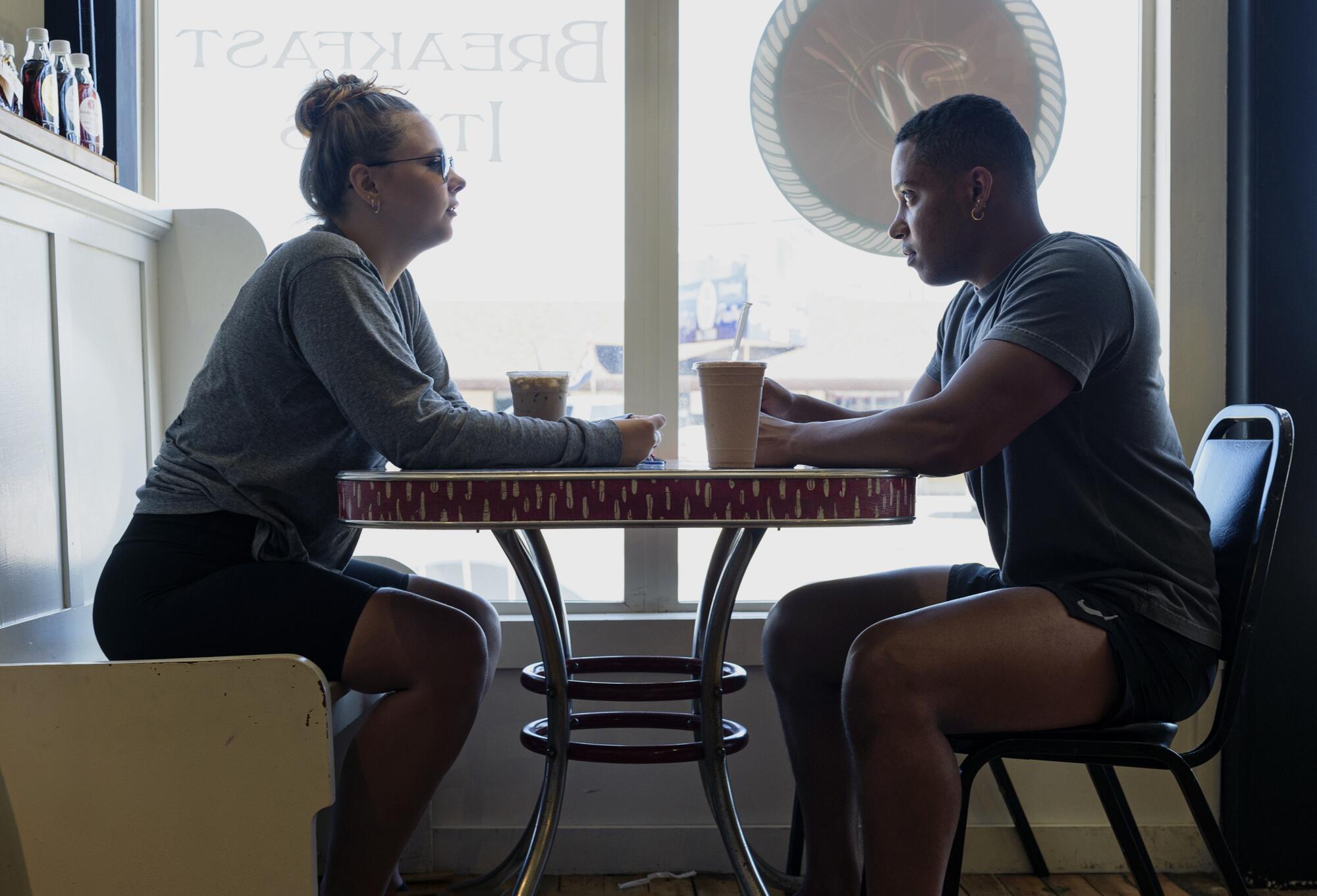
As protests unfolded across the country, his phone buzzed with texts from white friends seeking help to understand. He was the only Black person they knew.
“I think I’m racist,” started a recent message from one white friend.
“I don’t think you’re racist. We just need to be continuing our education and learn about racism in our country and how we can stop it,” Jesse replied.
Some chats went well. Others went horribly.
“You have Black privilege,” a white friend once told him, citing the unfounded claim that “Black people are better athletes than white people.”
Another white friend texted him, saying Black people got special benefits, like historically black colleges and universities. Jesse messaged back, “You know white people go to those colleges, and do you know they were established when Black people couldn’t go to other schools?”
A friend said Jesse was privileged because his white dad, John, owned a heating, air conditioning and plumbing business in Fergus Falls, a city 45 minutes away.
“Sure, my family isn’t poor,” Jesse said in response to questions about Dad, whose full-time job away from home left Marcy to do most of the talking for the couple on race. “But it isn’t because I’m Black.”
Jesse dreamed of leaving Ottertail one day for a place where people looked more like him, where simple ideas needed no explanation.
Texas and California came to mind. But he would miss family. His white brothers and sisters, all many years older and most of them married with kids, lived nearby.
And he hated big, loud cities. He preferred open spaces and lakes for daily dips, and planned to trade his Volkswagen Passat for a Ford Bronco to ride around town.
Maybe he could settle down beachside in Carlsbad, he thought, where he once visited a cousin, or in suburban Dallas, a few hours from where he was born in the small Texas city of Brownwood before Marcy adopted him through a Christian agency.
We love our boys, but we had this stupid idea that we could raise them here where it’s nothing but white people.
— Marcy Ugstad
Marcy’s dad was a union activist at a power plant. She grew up admiring Rosa Parks and the Rev. Martin Luther King Jr. But she was starting to reexamine whether she was the firm supporter of civil rights that she thought she was.
She believed racism was a sin. But she began to see that segregation and violence against Black people were only two of the many ways it showed. She thought to the moment years ago when she went to a basketball game and was waved through security while all the Black fans went through metal detectors. She tried to imagine what it was like to not be in the majority, remembering the time she visited China without Jesse and strangers on the street wanted photos because they deemed her exotic.
She even began to rethink her choices in adopting Jesse and Jacob, his 23-year-old brother, who is also Black and lives separately in Ottertail. Jacob had recently said he was scared of police and told his mother he wished he was white, though he didn’t battle her the way Jesse did.
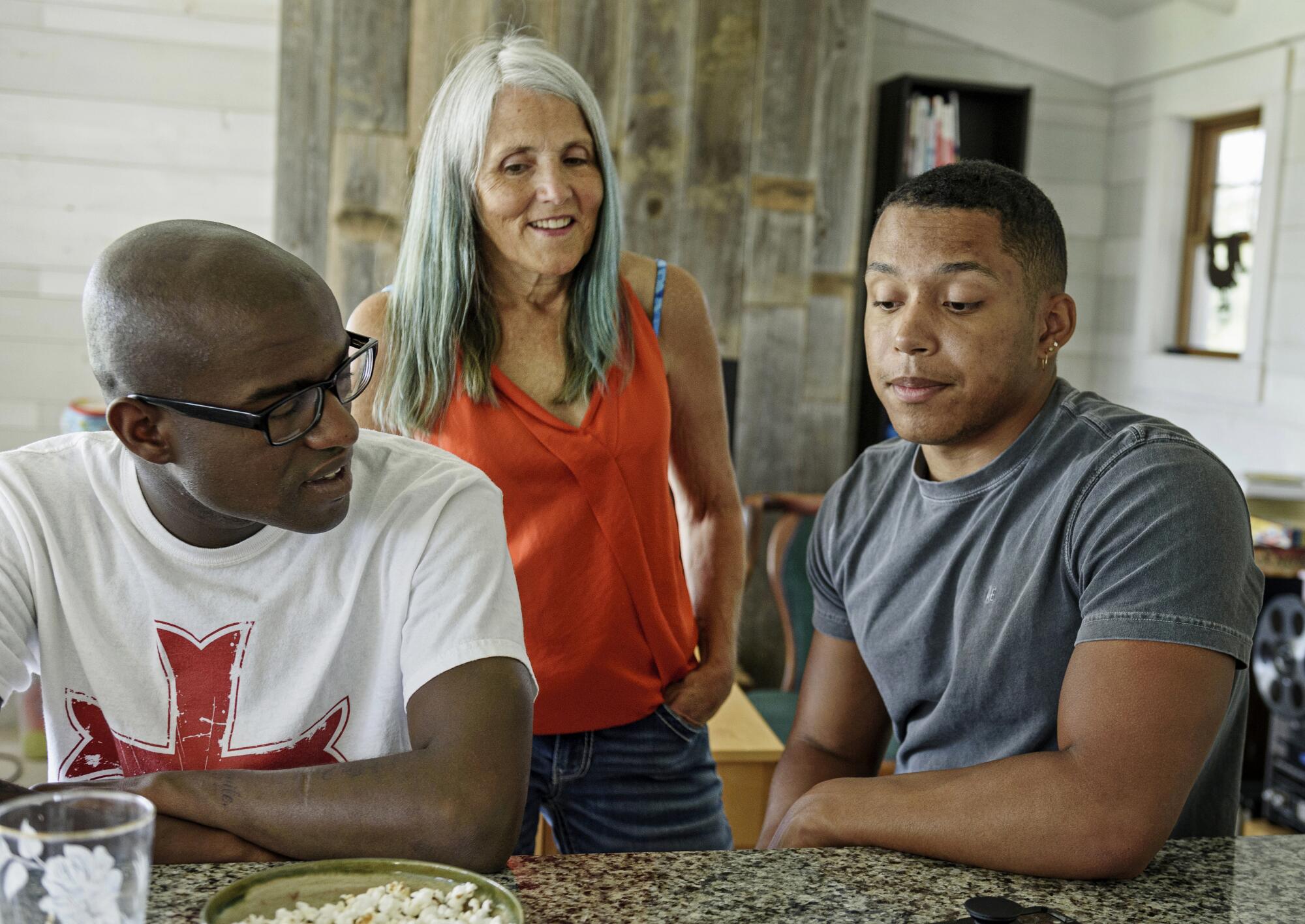
She had tried to take her kids on trips — to King’s home in Atlanta, to Black churches in the Twin Cities, to Los Angeles and Houston, to show them large Black communities. She had sent Jesse to Obama’s second inauguration, where he marched in the parade playing the mellophone with his high school band. She wondered if it was all enough.
“We love our boys, but we had this stupid idea that we could raise them here where it’s nothing but white people,” she said recently with a sigh, remembering that the only advice she received when adopting was to put up a few paintings of Black people in her home.
Sometimes, Jesse wonders if he’s too hard on his mom. He tries to see things from her point of view. Other times, he doubts how much she can understand.
He recently quizzed her, suggesting she had no idea what a “Karen” was.
Marcy skipped the talk of viral videos and distilled the name to the core. “It’s someone who is white and selfish, who thinks it’s them who is always right, and doesn’t think about anyone but themselves.”
Jesse was taken aback. She got it.
***
Their biggest disagreement is how to handle anger and ignorance, and the concept of race itself.
Not long ago, Marcy and Jesse sat down at the Williams Company Store, a coffee shop, restaurant and gift store on Main Street. They revisited the recent months and painful conversations since George Floyd’s death.
Jesse was still angry at those church friends who wouldn’t march for Black lives. He was mad at the text message exchanges with his friends, at the people he saw on Facebook and Twitter saying “All lives matter” and talking about “Black-on-Black crime” instead of police violence.
He kept on playing moments from his life, like when he worked 20 minutes away at the Verizon store, and people would routinely come in and tell him they were surprised that he spoke English so well.
“At least it’s not as bad here as it is down in Georgia or places like that,” Marcy told him.
“No, Mom, it is,” Jesse said. “People in the South just don’t give a crap. They will say things to your face. Out here, it’s ‘Minnesota nice.’ They’ll insult you behind your back.”
Marcy told him to practice grace: “The bottom line is you have to forgive people.”
Jesse said not everyone deserved to be forgiven. Some didn’t even want to be.
“It’s fine to make mistakes. But some people seem like they are bending over backwards to not learn.”
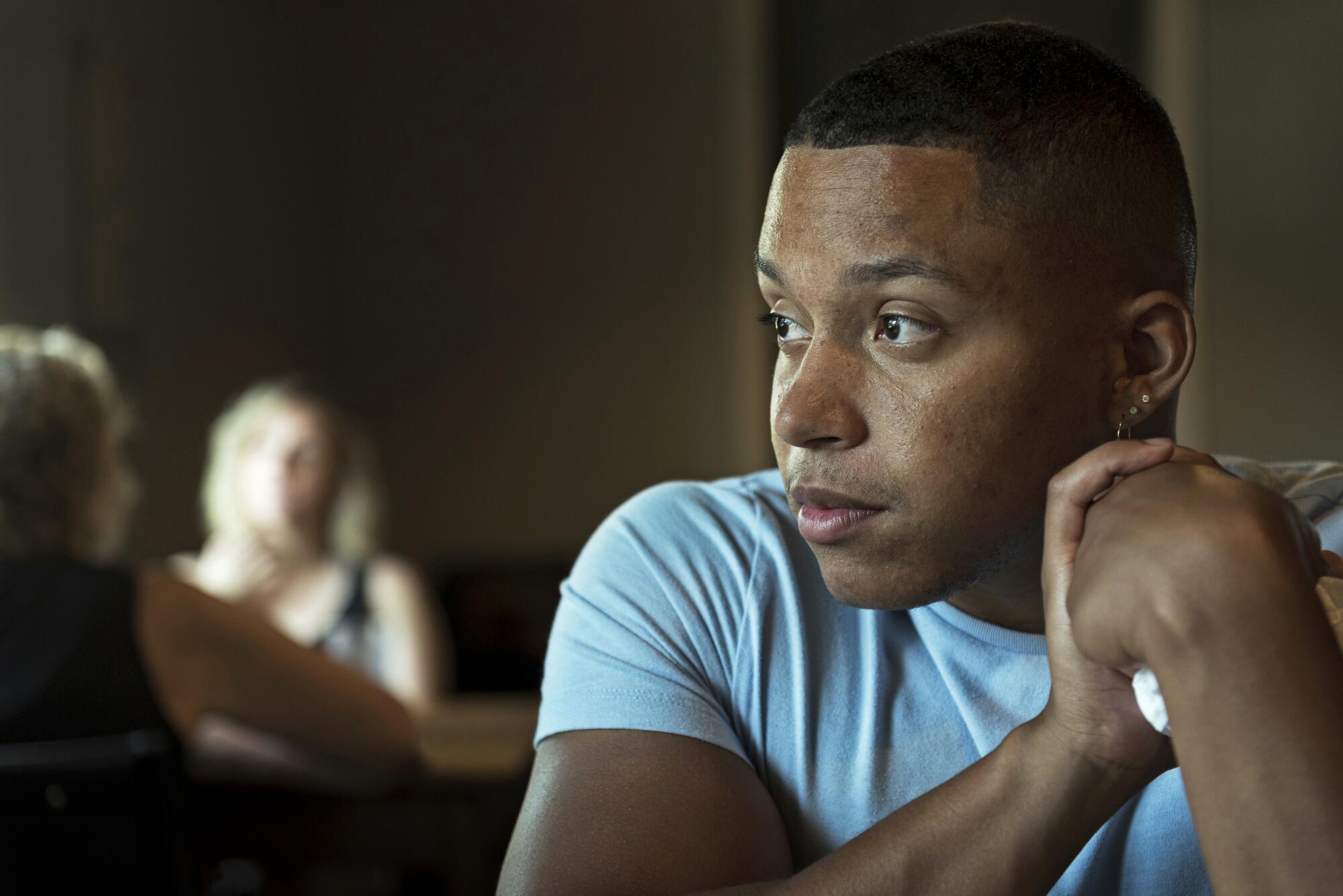
Marcy thought part of the problem was simply the way humans classify race.
“I always tell you just say you’re human. Cross out the boxes on those forms, check ‘other’ and say human. But nobody goes along with that,” she said.
“No, Mom. I’m Black. You’re white,” Jesse replied. “We don’t live in some ideal world.”
“We’re all children of Abraham,” his mother said, before cutting herself off. “But you’re right. Nothing will change if white people don’t talk about race.”
It was the kind of conversation they’d carry back to their living room. Mother and son bound by love, if not by race.
More to Read
Start your day right
Sign up for Essential California for news, features and recommendations from the L.A. Times and beyond in your inbox six days a week.
You may occasionally receive promotional content from the Los Angeles Times.

